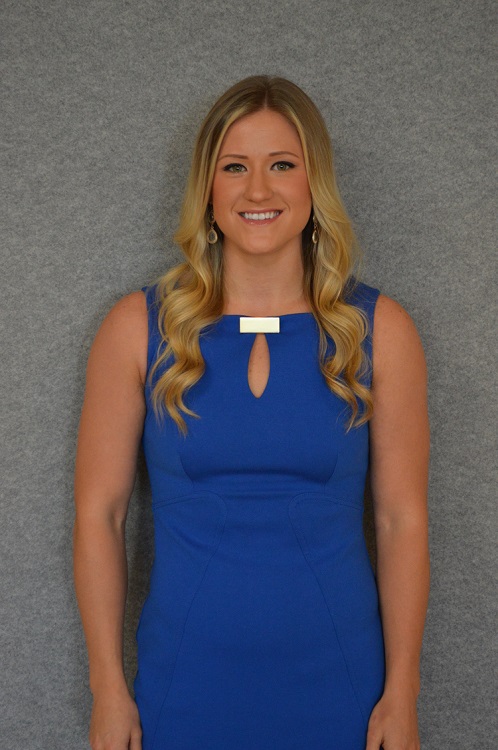
Kaycee Reynolds, aquatic ecology graduate student, earned second place at UNL's Big Data Symposium poster session. The symposium aimed to explore the challenges and potential benefits of extracting knowledge from large volumes of data, as well as how students and faculty can engage in the big data revolution.
"Since this conference was focused on 'big data' and would most likely be attended by scientists beyond ecology, I really had to make sure I used simple language and lots of conceptual diagrams to get the main point of my poster across," Reynolds said. "I relied on feedback from my lab mates to determine whether the message was getting muddled."
Reynolds capitalized on SNR's Graphics Service Center to test run multiple versions of her poster before selecting the right one.
"I utilized (the center) to print several draft versions of my poster at full-scale to ensure it was visually appealing and balanced," she said.
Reynolds' poster, "High-frequency Water Quality Monitoring to Quantify Uncertainties of Sampling Strategies in Agricultural Watersheds," focused on using time dense observations from a spatially distributed, high-frequency monitoring network in Iowa to quantify the uncertainty in nitrate concentration estimations for conventional sampling regimes and frequencies.
"In-situ sensors measure stream nitrate concentrations at temporal resolutions that were previously unattainable by grab sampling," she said. "I was able to subsample this high-resolution data to simulate traditional sampling regimes and frequencies and then compare them to 'reality' (i.e. the continuous dataset). Results so far indicate that a discrete time-interval sampling regime provides the most accurate nitrate concentration estimation regardless of frequency."
The symposium took place Nov. 6-7 at Nebraska Innovation Campus. Reynolds said the poster session was well-attended and offered graduate students an opportunity to interact with scientists from varying disciplines.
"It was attended by a diverse group of scientists from across the university with presenters from well-known entities such as Google, IBM, NASA, NSF and more," Reynolds said. "It is a rare occasion to be able to discuss the focus of your graduate work with professional scientists from such a variety of backgrounds and career paths beyond academia."
— Mekita Rivas, Natural Resources